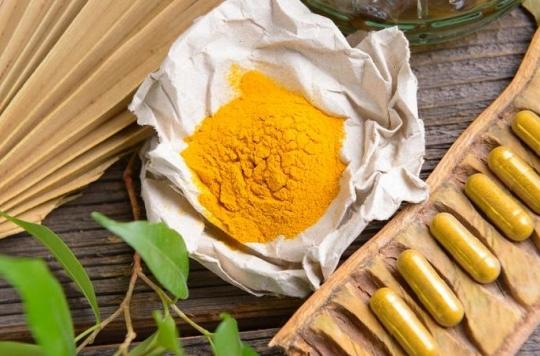People with cancer often use herbal medicine. But some products can interact with cancer treatments. The French-speaking association for supportive oncology care (AFSOS) publishes a practical guide for healthcare professionals.

Several plants are known to be anti-cancerous. Some of their properties would make it possible to treat it as a complement to conventional therapy, or to help prevent the onset of the disease. Like, for example, turmeric, licorice or grapefruit.
According to a survey by the Societal Medicines Observatory in 2011, 35% of French people use plants in addition to traditional medicine. But some plants can interact with anti-cancer treatments. Thus the Francophone Association of Supportive Oncological Care, AFSOS, has published a guide made up of 10 practical sheets for healthcare professionals.
10 shelled food supplements
The guide looked at ten plants traditionally used as food supplements. For each of them, we find its virtues but also the contraindications. Garlic, for example, is both antiseptic and anticoagulant, but you should stop consuming it as a supplement seven days before surgery. The same goes for ginger, which is used as an anti-nausea medication.
It is better to avoid soy-based food supplements in case of breast, uterine or ovarian cancer. These tumors strongly dependent on the levels of female hormones, such as estrogen, are thought to be aggravated by the “estrogen-like” effect of soy. The same side effects are seen with sage.
Guarana is also one of the widely used food supplements. It is the plant that contains the highest concentration of caffeine. It is therefore a stimulant to be used with caution, because it can decrease the effects of sedatives and cause insomnia or convulsions.
If you use herbal medicine, you should talk to a pharmacist, who can tell you more about the indications and contraindications of each plant.
.

















